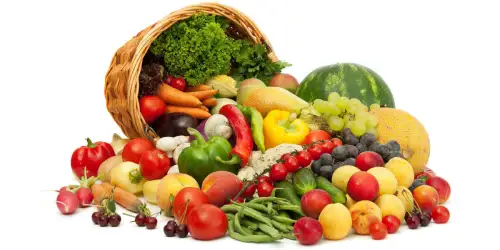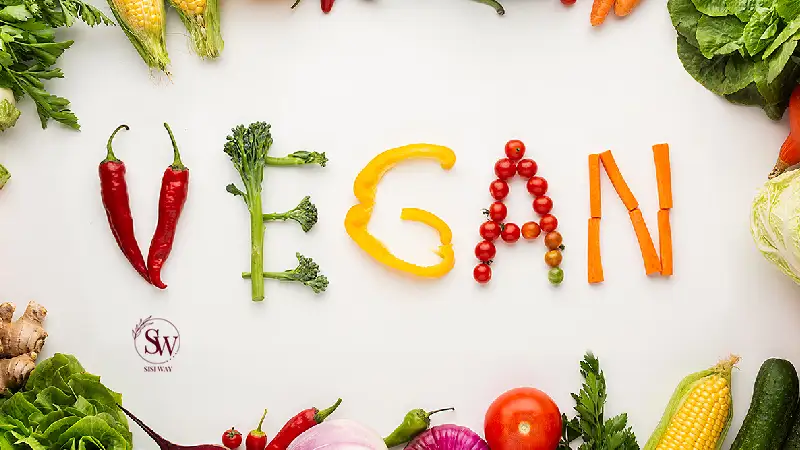Every Thing About Being Vegetarian

In recent years, the global shift towards healthier and more sustainable lifestyles has sparked a renewed interest in vegetarianism. As individuals become more conscious of their dietary choices and the impact on the environment, the vegetarian lifestyle is gaining popularity. In this comprehensive guide, we will delve into everything you need to know about being vegetarian, from its health benefits and environmental impact to practical tips for a seamless transition.
What is vegetarian?
Vegetarianism is a dietary and lifestyle choice that involves abstaining from the consumption of meat, poultry, and fish. Vegetarians primarily rely on plant-based foods such as fruits, vegetables, grains, legumes, nuts, and seeds for their nutritional needs. The philosophy behind vegetarianism often extends to ethical and environmental considerations, promoting a more sustainable and compassionate approach to food choices. There are variations within vegetarianism, with some individuals including eggs (ovo-vegetarians), dairy products (lacto-vegetarians), or both (lacto-ovo vegetarians) in their diets. The key principle is the avoidance of animal flesh, with the degree of exclusion varying among individuals based on personal preferences and beliefs
Health Benefits of Vegetarianism

- Nutrient-Rich Diet: Adopting a vegetarian lifestyle encourages the consumption of a variety of nutrient-rich foods, including fruits, vegetables, whole grains, nuts, and seeds. These foods provide essential vitamins, minerals, and antioxidants necessary for optimal health.
- Heart Health: Numerous studies suggest that a vegetarian diet may contribute to a lower risk of heart disease. The reduction in saturated fat and cholesterol intake, combined with the higher intake of fiber and plant-based nutrients, supports cardiovascular health.
- Weight Management: Vegetarian diets have been associated with effective weight management and weight loss. The emphasis on plant-based foods tends to be lower in calories and saturated fats, making it an attractive choice for those seeking a healthier weight.
- Reduced Risk of Certain Diseases: Research indicates that vegetarians may have a lower risk of certain diseases, including type 2 diabetes, hypertension, and certain types of cancer. The abundance of antioxidants and anti-inflammatory compounds in plant-based foods contributes to this protective effect.
Environmental Impact of Vegetarianism

- Reduced Carbon Footprint: Livestock farming is a significant contributor to greenhouse gas emissions. Choosing a vegetarian lifestyle can significantly reduce an individual’s carbon footprint, as plant-based diets generally require less land, water, and energy resources compared to meat-based diets.
- Preservation of Biodiversity: The expansion of agricultural lands for livestock farming often leads to deforestation and habitat destruction. By choosing plant-based alternatives, individuals contribute to the preservation of biodiversity and the protection of natural ecosystems.
- Water Conservation: The production of meat, especially beef, requires large amounts of water. Adopting a vegetarian diet is an effective way to conserve water resources, as plant-based foods generally have a lower water footprint.
A Good Vegetarian Diet

Maintaining a well-balanced vegetarian diet is essential to ensure you meet your nutritional needs and thrive on a plant-based lifestyle. Here’s a breakdown of key components and examples to guide you towards a nourishing vegetarian diet:
1. Plant-Based Proteins:
- Legumes: Incorporate lentils, chickpeas, black beans, and soy products like tofu and tempeh.
- Quinoa: A complete protein source that can be used as a base for various dishes.
- Nuts and Seeds: Include almonds, walnuts, chia seeds, and hemp seeds for a protein boost.
2. Whole Grains:
- Brown Rice: A nutritious alternative to white rice, rich in fiber and essential nutrients.
- Oats: Versatile and high in fiber, oats can be enjoyed as oatmeal or added to smoothies.
- Whole Wheat Pasta and Bread: Opt for whole grain options to enhance your fiber intake.
3. Abundant Fruits and Vegetables:
- Leafy Greens: Spinach, kale, and Swiss chard are packed with vitamins and minerals.
- Colorful Vegetables: Include a variety of bell peppers, carrots, broccoli, and tomatoes for a diverse nutrient profile.
- Fresh Fruits: Berries, citrus fruits, apples, and bananas provide essential vitamins and natural sweetness.
4. Dairy or Dairy Alternatives:
- Greek Yogurt or Plant-Based Yogurt: A rich source of protein and probiotics.
- Milk Alternatives: Choose almond, soy, or oat milk fortified with calcium and vitamin D.
5. Healthy Fats:
- Avocado: Packed with monounsaturated fats and a great addition to salads or sandwiches.
- Nuts and Seeds: Almonds, flaxseeds, and chia seeds provide omega-3 fatty acids.
6. Fortified Foods:
- Nutritional Yeast: Adds a cheesy flavor and is often fortified with vitamin B12, crucial for vegetarians.
- Fortified Plant-Based Milk: Ensure adequate intake of calcium and vitamin D.
Sample Day of Meals:
Breakfast:
- Overnight oats with almond milk, topped with fresh berries and a sprinkle of chia seeds.
- A small handful of almonds for added protein.
Lunch:
- Quinoa salad with mixed vegetables (bell peppers, cherry tomatoes, cucumber) and a lemon-tahini dressing.
- A side of hummus with whole-grain crackers.
Dinner:
- Lentil and vegetable curry served over brown rice.
- Steamed broccoli on the side.
Snacks:
- Greek yogurt with sliced banana and a drizzle of honey.
- Carrot sticks with hummus.
Read More: Olive Appetizers
Practical Tips for Transitioning to a Vegetarian Lifestyle

- Gradual Transition: Instead of an abrupt change, consider gradually reducing meat intake. Start by incorporating more plant-based meals into your diet and gradually phasing out meat products.
- Explore Plant-Based Alternatives: Explore the wide variety of plant-based alternatives available in the market. From plant-based burgers to dairy-free milk options, there are numerous delicious and nutritious alternatives to traditional animal products.
- Educate Yourself: Arm yourself with knowledge about vegetarian nutrition to ensure you meet your dietary needs. Pay attention to essential nutrients such as protein, iron, calcium, and vitamin B12, and find plant-based sources for these nutrients.
- Connect with the Vegetarian Community: Join online forums, attend local meetups, or connect with friends who follow a vegetarian lifestyle. Sharing experiences and gaining insights from others can be invaluable during the transition.
Distinguishing Vegetarianism from Veganism: Understanding Dietary Choices

While both vegetarianism and veganism share the common principle of abstaining from meat, the distinction lies in the extent of animal product avoidance. Here’s a detailed comparison between the two dietary choices:
1. Definition:
- Vegetarianism: Vegetarians exclude meat, poultry, and fish from their diet but may include other animal-derived products such as dairy, eggs, and honey.
- Veganism: Vegans, on the other hand, go a step further by avoiding all animal products, including dairy, eggs, honey, and any other items derived from animals.
2. Exclusions and Inclusions:
- Vegetarians: While excluding meat, vegetarians often include dairy products (lacto-vegetarians), eggs (ovo-vegetarians), or both (lacto-ovo vegetarians) in their diet.
- Vegans: Vegans exclude all animal-derived products, focusing solely on plant-based foods.
3. Ethical Considerations:
- Vegetarians: Individuals may adopt a vegetarian lifestyle for various reasons, including health concerns, environmental sustainability, and ethical considerations related to animal welfare.
- Vegans: Veganism is often driven by a strong ethical stance against the use of animals for food, clothing, or any other purposes.
4. Environmental Impact:
- Vegetarians: While reducing the environmental footprint by avoiding meat, vegetarians may still consume dairy and eggs, which can have environmental implications.
- Vegans: Veganism is often seen as a more environmentally friendly choice, as it excludes all animal products, contributing to reduced land and water usage associated with animal agriculture.
5. Nutritional Considerations:
- Vegetarians: With the inclusion of dairy and eggs, vegetarians have additional sources of protein, calcium, and vitamin B12 in their diet.
- Vegans: Vegans need to pay special attention to obtaining essential nutrients such as vitamin B12, iron, calcium, and omega-3 fatty acids from plant-based sources or supplements.
6. Food Choices and Substitutes:
- Vegetarians: Enjoy a wide range of plant-based foods along with dairy and eggs, and may incorporate vegetarian alternatives to traditional meat products.
- Vegans: Rely on plant-based alternatives for meat, dairy, and eggs, including products made from soy, almond, oats, or other plant sources.
FAQs about Vegetarianism
Conclusion
Choosing a vegetarian lifestyle is a personal decision that can positively impact your health, the environment, and animal welfare. By understanding the health benefits, environmental impact, and practical tips for transitioning, you can embark on a journey toward a more sustainable and compassionate way of living. Embrace the diversity of plant-based foods, connect with the vegetarian community, and savor the numerous benefits that come with being vegetarian.



